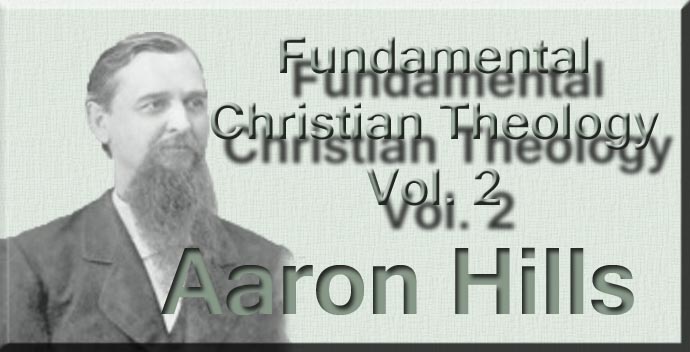A brief account of the authors of prominent Christian doctrines, for the quick use of students.
1. Gnostics or Docetae. First and second centuries. They denied to Christ the possession of a real body of flesh and blood. He had only a phantom body, and he died only in appearance. The incarnation was a sham. His atonement was an illusion. They taught that all sin was connected with physical matter, and physical sins did not harm the soul.
2. Ebionites. They denied the divinity of Christ and the divine incarnation. Essene Ebionites insisted on the law only for Jews. Pharisaic Ebionites insisted on the law for both Jews and Gentiles. They were a strongly Judaistic sect, living from the first to fifth century.
3. Sabellius. A Presbyter of Ptolemais, Egypt. Excommunicated A. D. 261. He taught that the Trinity was only a trinity of manifestations, first as Father; second, as Son; third as Holy Spirit, Same view held by Schleiermacher and Bushnell.
4. Arius, born A. D, 250; died, 336. He denied that the Son was co-essential and co-eternal with God. He was only the greatest created spirit.
5. Athanasius, born in Alexandria, 296 A. D. He defended the truth against the Arians. Was driven into exile three times. Once he hid in his father's tomb four months.
6. Appollinaris. Bishop of Laodicea. 362 A. D. He opposed Arianism, but went to an extreme in Christology. He taught that the Divine nature in Christ took the place of the rational human mind, or soul, and that the body of Christ was a spiritualized and glorified form of humanity.
7. Nestorius. Fifth century. The Nestorians held that Christ was two persons, not one. They denied the union of two natures in a personal oneness of Christ. There were two persons, the Son of God, and a human person. Between the two there was only Spiritual Communion.
8. Eutychius. Fifth Century. The Eutyehians held the deification of the human nature of Christ.
9. Augustine, born 353, Numidia; mother was Monica. Went to school in Carthage. Went to Rome 383, and to Milan 384, Baptized Easter 387. Died at Hippo 430. The great theologian of the Latin Church. Laid the foundation of Calvinism.
10. Pelagius, born in Breton 380. Was in Rome. Died 453.
Opposed by Augustine:
a. Adam would have died, without sinning,
b. His sin affected him only,
c. All children are born pure. He taught:
d. Men do not die because of Adam's sin.
e. All infants are saved, baptized or not.
f. Both law and gospel lead to heaven,
g. Before Christ there were sinless men.
11. John Calvin. Born Noyon, 1509; died 1564. Developed Calvinism. Burned Servetus.
12. Laelius Socinus: Born 1525, Siena; died 1562, Zurich. Spiritual father of Unitarianism.
His nephew, Faustus Socinus: Born 1539; died 1604. Developed the system:
Three parties.
1. Jesus is a God of an inferior nature.
2. Jesus was the greatest created Spirit (Arianism).
3. Christ was only a man.
13. Herman Arminius. Born 1560; died 1609. A martyr to truth. Leyden University gave its first D. D. to Arminius. The founder of Arminianism, the winning theology of the world.
14. Grotius. Born at Delft, 1583; died, 1645. The father of International Law, and Governmental Theory of the Atonement. One of the greatest minds. Arrested, tried, condemned, imprisoned, banished. The fate of God's best souls.



 Home
Home What's New
What's New Bible
Bible Photos
Photos Hiking
Hiking E-Books
E-Books Genealogy
Genealogy Profile
Free Plug-ins You May Need
Profile
Free Plug-ins You May Need
 Get Java
Get Java.png) Get Flash
Get Flash Get 7-Zip
Get 7-Zip Get Acrobat Reader
Get Acrobat Reader Get TheWORD
Get TheWORD